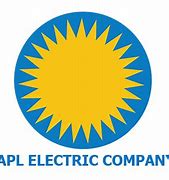Aba Power’s Tariff Hike: A Deep Dive into the Rationale and Repercussions
Aba Power Limited Electric, the sole electricity distribution company serving Abia State, Nigeria, announced a substantial tariff increase effective January 1, 2025. This move, authorized by the Nigerian Electricity Regulatory Commission (NERC), saw tariffs surge by over 50%, impacting various customer segments classified under different band categories (A, B, and C). Band A customers, representing those with the most reliable supply, now face charges ranging from N219.70 to N241.45 per kilowatt-hour (kWh), a significant leap from the previous N99/kWh. Similarly, Band B and C customers experienced increases, with their respective tariffs landing between N180.77 and N203/kWh, and N145 to N205/kWh. This rapid adjustment, approved a mere 26 days after Aba Power’s initial application on December 11, 2024, underscores the volatile economic landscape and the pressing need for cost recovery within the power sector.
Aba Power attributes the tariff hike to the prevailing macroeconomic challenges in Nigeria, which have significantly impacted its operational expenses. The official statement released by the company emphasized the necessity of this adjustment to maintain service quality and comply with regulatory standards. The company argues that the increased tariffs will provide the financial buffer needed to navigate the volatile economic environment and ensure continued service delivery. This explanation, however, has done little to quell the discontent among customers.
The public response to the tariff increase has been largely negative, with many customers voicing their frustration and concerns on social media platforms. Their primary grievances revolve around the perceived lack of adequate notice, the steepness of the increase, and the company’s perceived failure to consistently meet its service obligations, particularly concerning the promised 20-24 hours of power supply for Band A customers. Several users pointed out the irony of raising tariffs while failing to deliver the promised level of service. This disconnect between increased cost and perceived stagnant or even declining service quality has fueled public skepticism and anger.
The timing of the tariff hike is particularly sensitive, given the broader economic context of high inflation and economic uncertainty in Nigeria. Customers already grappling with rising living costs are now burdened with a significantly higher electricity bill, further straining household budgets and potentially impacting businesses operating within Abia State. The abruptness of the implementation, with the new tariffs taking effect before the official announcement, has further exacerbated public discontent. The perceived lack of transparency and communication from Aba Power has only deepened the distrust between the company and its customers.
This tariff hike comes on the heels of a broader trend of increasing electricity costs across Nigeria. In April 2024, NERC had approved a general tariff increase for Distribution Companies (Discos), citing the escalating subsidy burden on the federal government. Between the second and third quarters of 2024, the government’s subsidy obligation for the power sector surged by a staggering N84.06 billion, highlighting the financial strain on the national budget. This escalating subsidy, driven by the gap between the cost of generating electricity and the tariffs paid by consumers, underscores the underlying financial fragility of the Nigerian power sector.
The situation in Abia State mirrors the wider challenges facing the Nigerian power sector. The need to balance cost recovery for Discos with affordability for consumers presents a complex dilemma. While Discos argue that tariff adjustments are essential for their financial viability and for ensuring continued investments in infrastructure, consumers bear the brunt of these increases, impacting their livelihoods and economic activities. The lack of consistent and reliable power supply, despite the tariff hikes, further exacerbates public frustration, eroding trust in the power sector and hindering economic development. Finding a sustainable solution requires a multi-pronged approach that addresses the inefficiencies within the power sector, promotes transparency and accountability, and ensures a fair balance between the needs of Discos and the affordability concerns of consumers. The long-term sustainability of the Nigerian power sector hinges on resolving these intricate issues and fostering a more equitable and efficient system that serves both the providers and the consumers of electricity.














